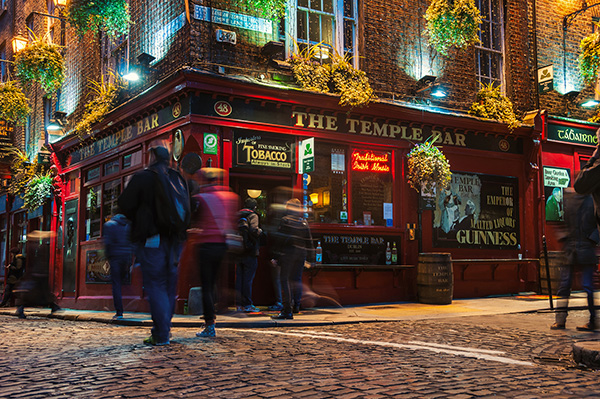Live Music vs. Recorded Music for Bars and Restaurants: Pros and Cons of Each

We delve into a restaurant music debate: live music versus recorded tunes, and how each impacts the dining experience.
As restaurant ambiance plays a crucial role in customer satisfaction, understanding the pros and cons of recorded vs. live music is vital for owners seeking to strike the perfect chord with their patrons.
First, because this applies to most restaurants and bars, we'll go over recorded music and the pros and cons of using this in place of live music.
Then we'll go over the pros and cons of recorded music for the same.
Recorded Music
Restaurant background music is an essential part of building an atmosphere for your restaurant's customers.
In fact, a study by BMI found that nearly 80% would stay longer if good music was playing.
In some cases, depending on your business model, live music may be a better fit. Let's explore the pros and cons below of recorded music when compared to live music.
Pros:
- Customers stay longer and purchase more with the presence of background music.
- Music makes customers more comfortable by distracting them from their surroundings.
- Well-chosen background music can increase sales, create good moods, and make customers more relaxed.
- Some customers may like to listen to music while they eat, improving the dining experience for them.
- Music can impact or enhance your customer's perception of taste and smell.
Cons:
- The volume and type of music have to be carefully chosen.
- High-quality recordings are a must.
- Some customers may dislike the music, as music is subjective.
- It can be expensive to get the licensing, and if you don't get the proper licenses, it could cost you significantly in terms of lawsuits.
- It may increase noise levels and negatively impact customer's ability to have conversations if not used carefully with the acoustics of the restaurant design.
In general, recorded music is best for restaurants and bars that are more focused on the atmosphere and dining experience. As you'll soon see, live music has other benefits, such as potential customer acquisition and being a go-to place for things to do.
If dining experience and atmosphere are what you're looking for, consider using one of many background music services to avoid licensing complications and have access to expert-curated playlists built to enhance a restaurant's atmosphere.
Live Music
While overhead music is designed to enhance the dining experience and atmosphere, live music allows you to leverage music as a way to attract more customers to your location.
The artists may post their gigs on social media and their fans will show up at your location to see them.
Or your customers share their experience on social media, building awareness among their friend group!
Let's explore the pros and cons of offering live music in your bar or restaurant.
Pros:
- Potential customer acquisition as artists gigging at your location share their gig dates on social media.
- Potential social media awareness as your customers share their experiences online with their friends. With video marketing on the rise, recordings of local artists in your restaurant can promote your location.
- Promotes socializing among customers at your bar, improving their experience.
- Can also promote sales in a similar way to recorded music.
- Promotes the local music scene which is good for your local reputation.
Cons:
- Can be expensive to run and maintain with audio equipment. Your building will also require good acoustics and you may need to hire a sound engineer to help you.
- The live music could disturb other customers who may be looking for a more atmospheric dining experience. If these are your target customers, recorded music might make more sense.
- Live music can attract a rowdy crowd depending on the type of music. With hard rock and heavy metal music fans, for example, may start a mosh pit or light up a cigarette indoors without a second thought due to smoker demographics overlapping with the smoking crowd.
- You may still need additional licenses from BMI, ASCAP, SESAC, or all three. Sometimes GMR as well. If you're playing recorded music as well, you'd need additional licenses. Make sure you're covered for all music uses!
- You may need additional insurance in case people get hurt. Musicians may trip on cables and fall off the stage. Your customers may form a mosh pit (unlikely, but probable).
Overall, live music is great for customer acquisition and building a fun experience. The same sales-related benefits (such as customers buying more because of good music selection) can be experienced with recorded music if you have a live piano at a wine bar, for example, but there are added expenses with hosting recorded music at your restaurant.
Conclusion
You don't necessarily need to restrict your restaurant or bar to exclusively offering live or recorded music. You can do both!
On weekends when people are looking for something to do, maybe have a live band come perform and let customers know in advance.
During the week or slower business hours, recorded music might make more sense.
It entirely depends on your business model, but hopefully, this article helped you think through which is best for your restaurant or bar!


